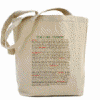genealogy lecture notes continue
more tips, goodies and caveats
By Deborah K. Millemaci
(return to genealogy)
Before I go further, I would like to reiterate the key records used when
researching genealogy.
History of Census Records
First, census records are categorized under federal
records, and there are a couple of interesting notes here. The first federal
census was taken in 1790. From then until 1840 only the male heads of
household were listed and the number of women in a household was not
recorded. Beginning with the census of 1850 every individual in a household
was recorded. Also, the level of education and occupation were listed. In
1887 the country of origin was added. In the 1900's a person was asked when
they emigrated to the U.S. and how long they had lived here.
History of Passenger Manifests
Ship passenger lists were not required by federal law until 1820. The
Passenger & Immigration List Indexes recorded the name of the individual,
their arrival date and a code which told where this information was extracted
from. After 1820, Boston, New York, and Philadelphia became the leading
shipping ports. The local newspapers for the port cities listed passengers
the day following their arrival, and also became a major part of the
ancestor's story.
Changing Naturalization Laws
The first laws regarding naturalization were implemented in 1790. Many
people wonder why immigrants wanted to become naturalized citizens. Simply
put, in order to vote you had to be a citizen of the United States. This was
also true for holding a public office. Years ago you also had to be a U.S.
citizen to buy and sell property. After 1790 the first paper filed for
citizenship was a "Declaration of Intention." It was customary for the
applicant to be a resident at least three years before filing this first
document. The normal waiting period at that time was three years and many
people were naturalized in a municipal court. "Petition for Naturalization"
was the second paper filed and the last set of papers filed was for
"Citizenship Papers" which were given to the family.
Record Caveats
Your state-level records will provide you with naturalization information
long before the Federal Census. Vital records include land deeds and wills
(which are only given to descendants). And don't overlook foreign language
newspapers as a resource - they usually contain more information than local
newspapers.
Foreign Genealogy Records
The final part of the genealogy seminar dealt with foreign genealogy records. One of
the most challenging aspects of foreign genealogy documents is understanding
the language. But you can overcome this obstacle by learning enough to
understand words contained in documents. Keep a language dictionary nearby
to check words and phrases. Also, don't be afraid to enlist the help of
family, friends, and teachers if there is something you don't understand.
Another option may be an ethnic genealogy group located in your area.
Understanding the foreign language is only part of whole picture. You must
also familiarize yourself with the various types of foreign records. There
are manuals on European Genealogy available and the LDS Family History
Library in your area has a variety of publications and microfilmed records.
Common Problems
You may encounter a few problems
when using foreign genealogy records. Two of the most common are knowing the
exact town your ancestor came from and what records are available there.
Some of the smaller towns and villages may only hold birth and church
records, while a larger province may contain the other records you may need.
Also, remember when using foreign records that many of them were handwritten.
This can be frustrating when trying to decipher information, but have
patience and determination, and you will overcome this obstacle. Cyndi List
(one of the largest resource websites for genealogy) has a section on
deciphering old handwriting .
Mr. Colletta stressed the importance of learning the historical and cultural
information about the person's homeland you are researching. Local folklore
will give you an idea of the customs and traditions that were a large part of
your ancestor's life before emigrating to America. Just as important is what
life was like for family
members once they emigrated to America (location, working conditions,
housing, organizations that assisted immigrants to become assimilated to
their new home, etc.). This information gives you a more complete picture of
who your ancestors were.
An Opportunity You Can't Miss
The last few minutes of the seminar were reserved for the usual
question-and-answer session. Upon leaving, Mr. Colletta stated that there
will be some surprises and a few disappointments as our genealogy research
progresses, but not to get discouraged. I have been researching my family
ancestry for over ten years, and I have always tried to remember that.
Sometimes when I have experienced a "dry spell," when I least expect it, I
will come across a small piece of information that fits part of my family
puzzle. If you ever have the opportunity to hear Mr. Colletta speak, don't
pass it up! He is truly motivating, and you will come away from his seminar
with much valuable information and insight.
Researching your family history is an extensive process; there are no easy
shortcuts here. But the rewards more than justify the long hours of
research, interviews, and letter-writing. You will have a testimony to your
ancestor's life that will be passed on to future generations, which will keep
their memories alive.
©Deborah K. Millemaci - 2002
No part of this article may be reproduced in any form without written permission from the author.


